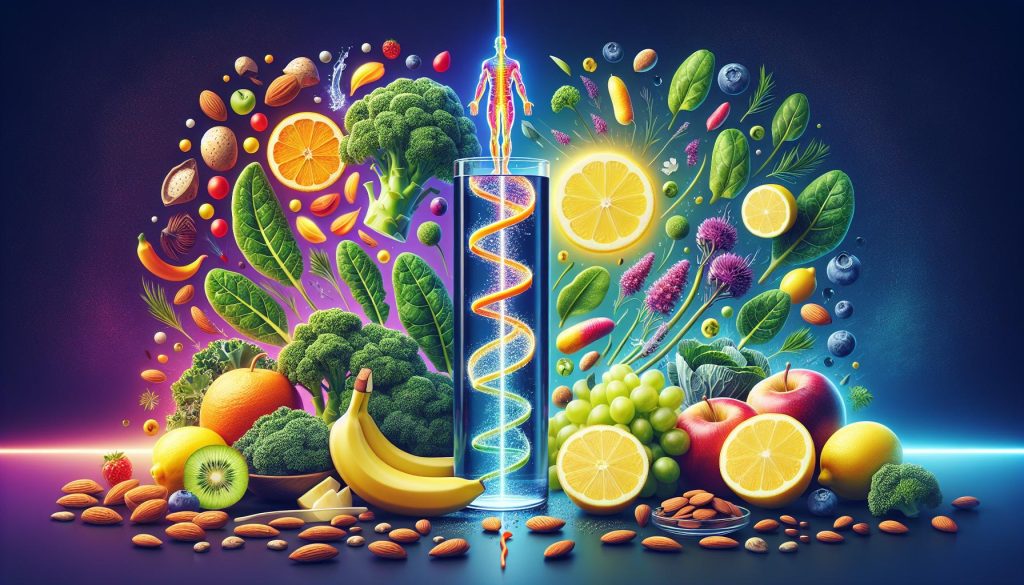
Introduction
Bubbling with curiosity about how diet affects energy levels? Let this vibrant article quench your thirst for knowledge. Yes, the food you consume does play a significant role in determining your energy levels. Essentially, eating the right combination of foods can help you feel energized and satiated, while poor dietary choices might make you feel sluggish and drained. In the paragraphs below, we’ll leap into the labyrinth of links between diet and energy, pulling from our pantry of knowledge about various food groups, macronutrients, and the influence of eating habits on your body’s natural fuel supply.
Fueling Up: Your Everyday Energy Source
Green light! Let’s drive into the realm of daily dietary choices, where your plate becomes the powerhouse of energy. Like a humming engine, your body utilizes foods and break them down into glucose – the primary source of energy. Simple sugar-based carbs such as sodas and candy provide instant glucose but leave you in an energy void shortly after. On the other hand, complex carbs, like whole grains and fruits, sustain your energy over a longer duration. Think of these sustenance sources as slow-release energy tablets for your body’s dynamo!
Raising the Stakes with Protein
Step aside carbs, it’s protein’s time to shine! Renowned for its role in muscle-building, protein is also vital for sustained energy. Unlike our speedy buddy glucose, protein slowly saunters into the bloodstream and prevents your blood sugar from nose-diving, keeping energy doldrums at bay and making you feel full for longer.
The Fat of the Matter
Lo and behold, the paradoxical player on the dietary stage – fats! Contrary to the villainous reputation it sports, fat is a fundamental energy source. Yes, unnecessary and excessive fat intake can lead to health issues, but ‘good’ fats, such as those found in avocados, nuts, seeds, and olive oil, provide long-lasting energy to keep your body buzzing like a well-oiled machine.
Hydrate and Help Yourself to Energy
Springing into the spotlight now is water, your body’s lubricating fluid. Being hydrated doesn’t directly serve as an energy source, but it facilitates critical body functions that support energy production. Dehydration can throttle these processes, leaving you feeling tired, so drink up!
The Alkaline Approach
Now, here comes an interesting twist to the dietary dance – the alkaline diet. This diet recommends trading acidic foods like dairy, eggs, and meats for alkalizing alternatives like leafy greens, vegetables, and some fruits. The theory is that this switch can influence your body’s pH level to induce various health benefits, including enhanced energy levels.
Timing is Key: Regular and Balanced Meals
Just as significant as the ‘what’ of eating is the ‘when’. Skipping meals or eating irregularly can send your energy levels on a rollercoaster ride. A balanced and regular eating pattern, however, keeps the fuel supply steady, ensuring your energy doesn’t flicker like a candle in the wind.
Conclusion
energy outcomes are evidently entwined with dietary choices. By understanding the relationship between food and our body’s energy production, we can customize our diet to maximize energy levels, enhancing our overall health and well-being.
Frequently Asked Questions
1. Why do I feel tired after eating? Feeling tired after eating, often dubbed as a ‘food coma’, can occur if you eat large meals or consume high amounts of carbs, fats, or sugar. The body directs blood towards digestion leaving you feeling lethargic.
2. Does sugar give you energy? Yes, sugar does provide an instant burst of energy because it breaks down into glucose rapidly. However, this sort of energy is short-lived and may lead to a “crash” afterwards.
3. What foods give the most energy? Foods that give the most energy are often rich in complex carbs, fiber, and protein. These include foods like whole grains, lean meats, fruits, vegetables, nuts, and seeds.
4. Does caffeine give you energy? Caffeine does not actually give your body energy, but it does stimulate the central nervous system, which can make you feel more awake and alert.
5. Can the alkaline diet boost energy levels? While claimed by the proponents of the alkaline diet, the energy-boosting ability of the diet lacks substantial scientific support. However, the diet encourages consuming plant-based and unprocessed foods which generally improve health and energy levels.



